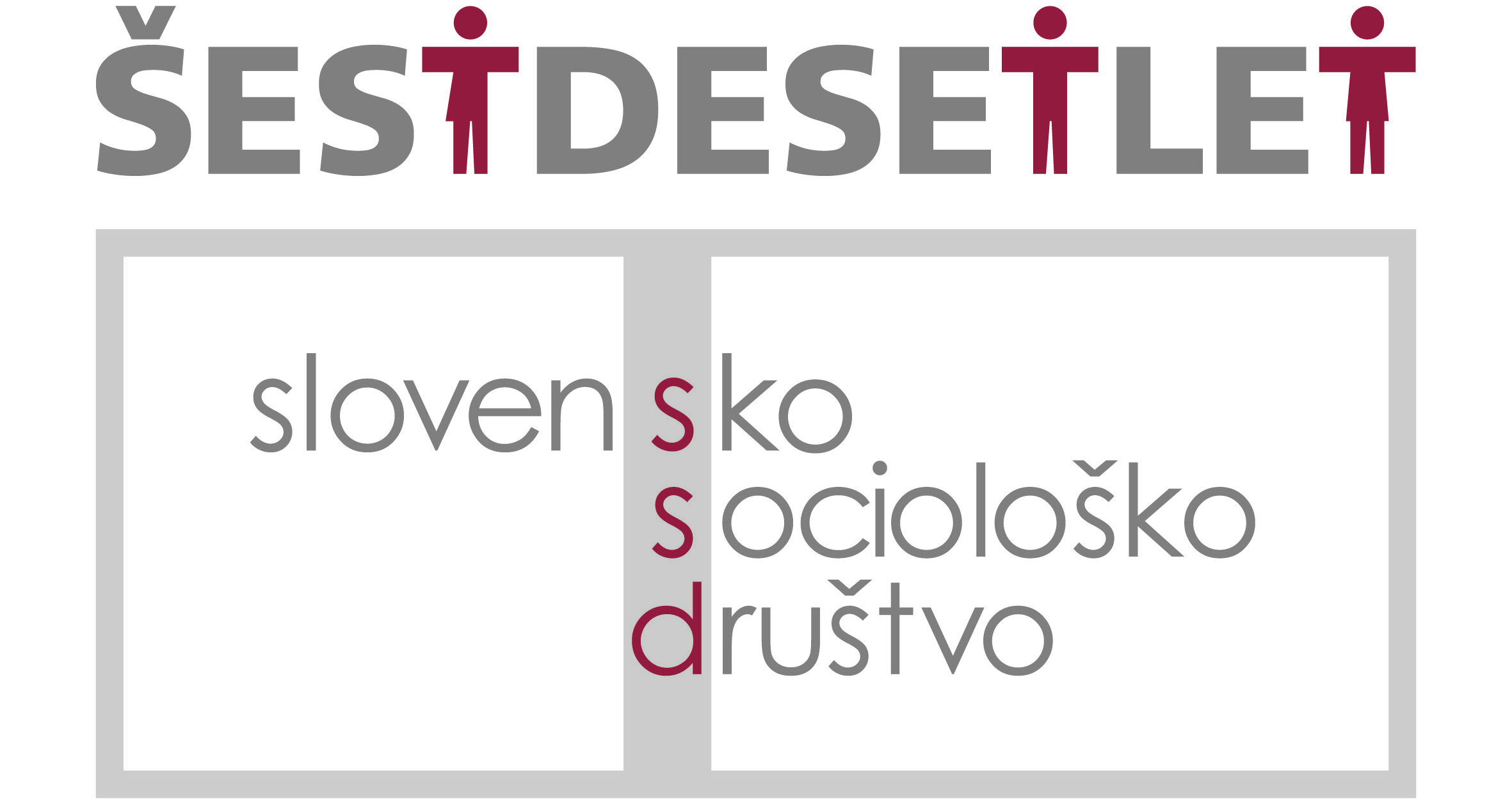Social Science Forum 103 (XXXIX)
Introduction: Dear Readers!
Tanja Oblak Črnič in Natalija Majsova
A book review as a "dialogue with different audiences"
Rok Smrdelj
Informal care for elderly: a new frontier of discrimination in employment and the labour market
Zdenka Šadl
ABSTRACT: The article deals with the discrimination of workers who are responsible for caring for elderly family members. Some basic questions emanating from carers’ discrimination in the light of workplace norms, organisational culture, policies for coordinating care and work, the gendered nature of informal eldercare, and anti-discrimination legislation are posed. A review of the literature shows that both female and male carers are exposed to discrimination and that the fundamental sources of discriminatory behaviour include stereotypes of working carers, their taking or requesting of flexible working arrangements and leave to care for a family member, a lack of, or inadequate, work–care reconciliation policies, and deficiencies in the law.
KEY WORDS: informal family care, working carers, eldercare, discrimination, work–care conflict
>> Download
Marginalisation of older people's problems as a reflection of news values: the case of the newspaper Delo
Otto Gerdina
ABSTRACT: This study evaluates whether older people’s problems are recognised as newsworthy by studying the level of attention they are given in a Slovenian daily newspaper. The data source was Slovenian newspaper articles on old age published in Delo between 2004 and 2018. Quantitative content analysis was used to evaluate the prevalence of older people’s problems. The study found that 124 (or 10%) of all the articles sampled (N = 1243) on old age in the newspaper reported on older people’s problems in Slovenia. The finding is discussed in relation to the news values theory and sociological scholarship on ageing. According to the results, older people’s problems are less likely to be recognised as news by journalists and editors because they do not align fully with news values.
KEY WORDS: media representation, social problems, old age, marginalisation, news values theory
>> Download
School Counselling Service in the Grip of a Hidden Curriculum
Katja Jeznik, Petra Gregorčič Mrvar
ABSTRACT: The hidden curriculum refers to various dimensions of pedagogical activity that concern (professional) knowledge, power relations and the socio-cultural context in which educators operate. The article presents ways in which school counsellors understand the hidden curriculum. The findings of qualitative analysis of interviews with 37 school counsellors are presented. Focus is given to how school counsellors understand the term hidden curriculum, recognise and respond to it. While the results revealed that school counsellors know the basic definitions of the hidden curriculum, deeper analysis of their answers showed this understanding is often incomplete and inadequate. In the future, greater attention should be paid to the extent to which the hidden curriculum is recognised and present in both schools generally and the work of the school counselling service.
KEY WORDS: school counselling service, hidden curriculum, teachers, routine, educational and disciplinary practices, subjective and implicit theories
>> Download
Between Hate and Silence: Experiences of LGBT+ People in Primary, Secondary and Tertiary Education Periods
Nika Ferbežar, Marko Gavriloski Tretjak
ABSTRACT: We examine the experiences of LGBT+ people in education, which international research shows is characterised by a lack of sensitivity to gender and sexual minorities. We conducted a qualitative study involving 27 individual interviews with LGBT+ persons who attend or have attended primary, secondary and/or tertiary education in Slovenia. The analysis revealed that the typical experience entails a combination of hate and invisibility. The data show the all-encompassing
influence of prejudice, which people mention in various situations. Less common are descriptions of protective factors, which are generally limited to peer support
and the commitment of individual staff members. The lack of systemic solutions is a challenge that must be addressed in the future by developing opportunities
for inclusive formal and hidden curricula and staff training.
KEY WORDS: LGBT+ students, education system, experiences, risk factors, protective factors
>> Download
Towards sustainable food consumption in the EU: critical analysis of individual responsibility
Dora Matejak
ABSTRACT: This paper explores the construction of sustainable food consumers and their role in securing the transition to a sustainable food system in the European Union. Drawing from studies of governmentality and employing the P.A.C.T. routine theoretical model of consumer responsibilisation, the aim was to analyse the ways in which the responsibilisation for making sustainable food choices has been formulated through the Farm to Fork Strategy. This strategy emphasises the importance of educating and empowering consumers to make sustainable food choices, as reflected in discursive formations and initiatives like the improvement of the EU food labelling system. However, the paper stresses that promoting sustainable consumption as a matter of consumer choice-driven responsibility could disproportionately burden consumers and deepen social inequalities without successfully addressing environmental issues.
KEY WORDS: consumerism, individualisation of responsibility, sustainable food consumption, farm to fork strategy, governmentality
>> Download
Book Reviews
- Aleš Završnik, Katja Simončič (ur.):
Artificial Intelligence, Social Harms and Human Rights.
London: Palgrave Macmillan, 2023. Nina Cvar - Mateja Sedmak, Fernando Hernandez-Hernandez,
Jana M. Sancho-Gil and Barbara Gornik (Eds.):
Migrant Children’s Integration and Education in Europe:
Approaches, Methodologies and Policies. Barcelona:
Ediciones Octaedro SL. Lucija Klun - Vlado Kotnik. Trans(spol)nost. Arheologija trans/vednosti.
Ljubljana: Krtina, 2022. Nina Perger - Louis Althusser: Za Marxa.
Ljubljana: Založba /*cf., 2023.
Prevod: Maja Breznik in Slavoj Žižek. Primož Krašovec
>> Download
